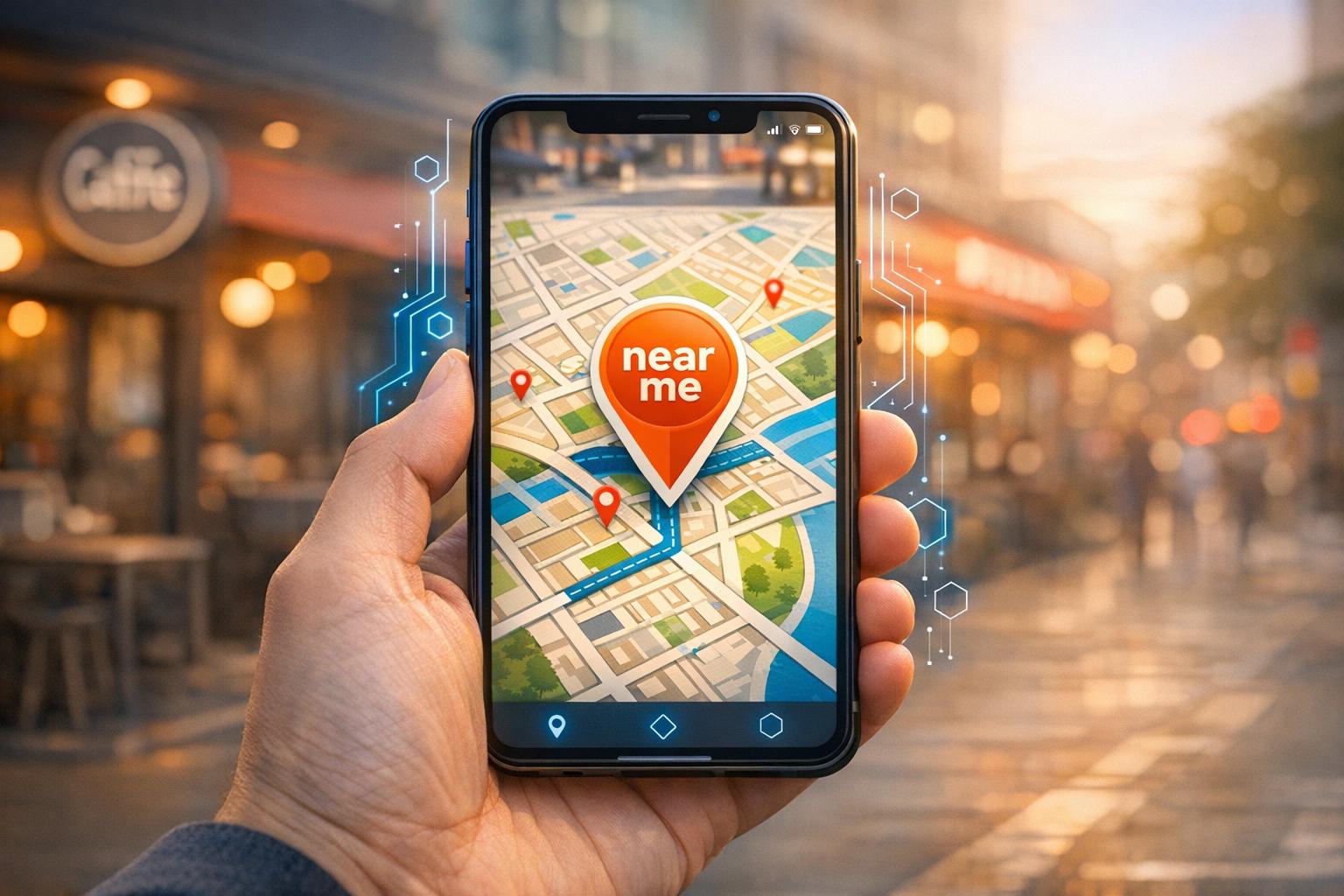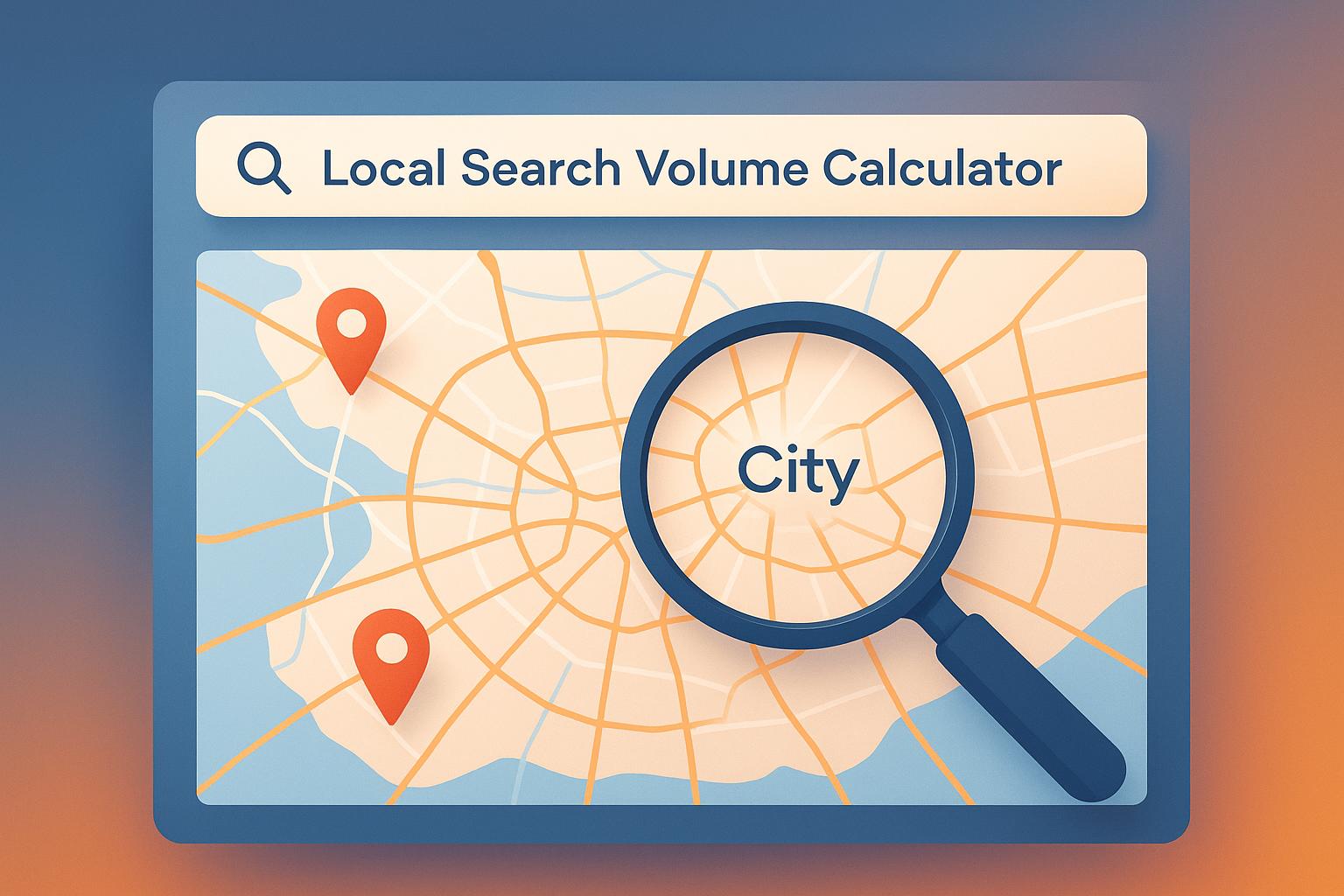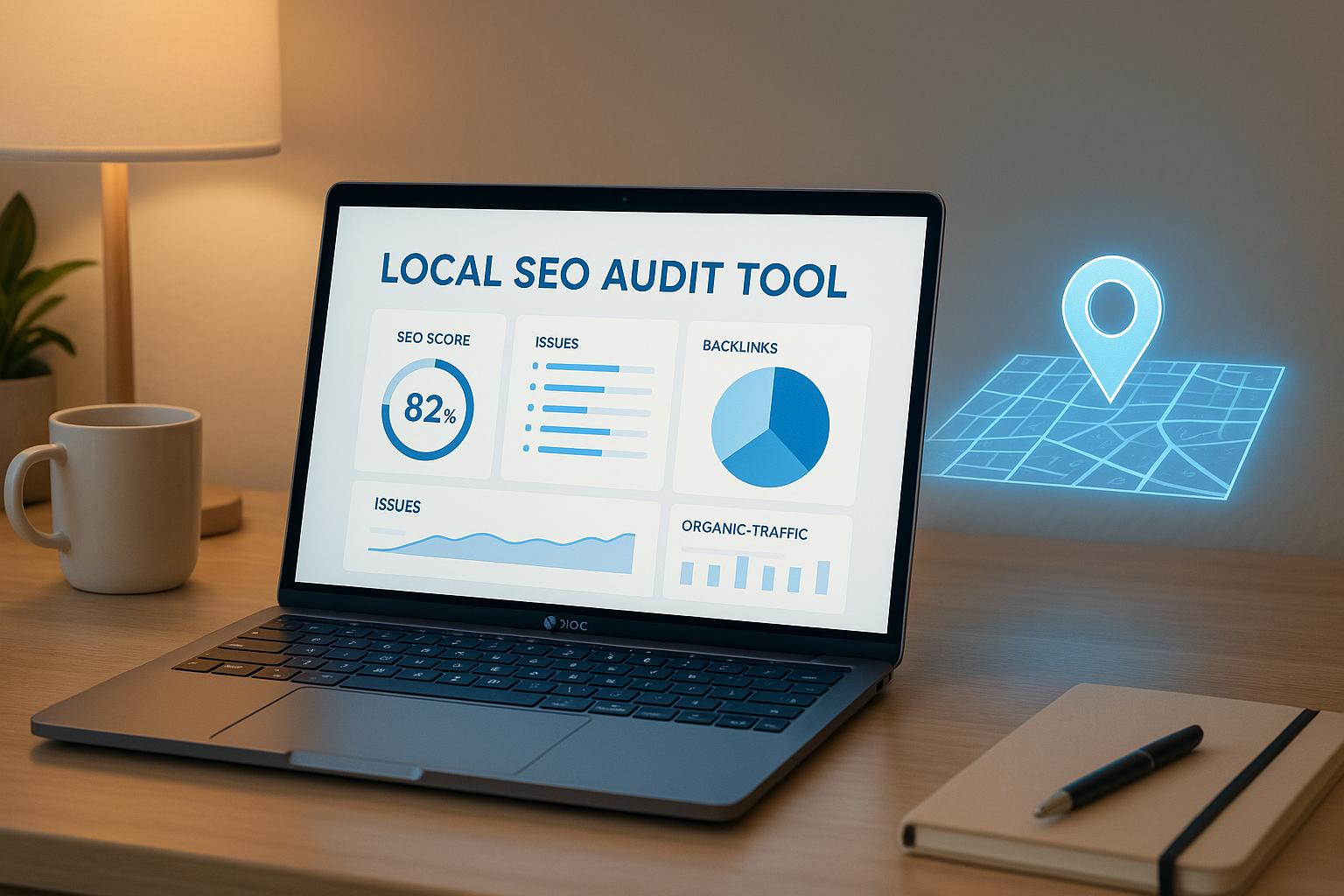In the competitive restaurant industry, standing out online is crucial to attract more diners. Local SEO tools help restaurants improve visibility, manage reviews, and optimize their online presence. Here’s a quick breakdown of 7 top SEO tools for restaurants:
- Local SEO Bot ($49/month): Automates Google Business Profile updates, citation management, and review responses.
- Google Business Profile (Free): Essential for local search visibility; showcase menus, reviews, and key details.
- Google Keyword Planner (Free): Helps identify high-impact, location-specific keywords diners are searching for.
- BrightLocal (From $29/month): Tracks local rankings, manages citations, and monitors reviews in one dashboard.
- Yext (Custom pricing): Ensures consistent business listings across a wide range of directories.
- Reputation.com (Custom pricing): Uses AI to analyze reviews, track sentiment, and improve online reputation.
- SEMrush Local (From $20/month): Combines review management with broader marketing insights.
Quick Comparison
| Tool | Key Features | Pricing | Best For |
|---|---|---|---|
| Local SEO Bot | Automated local SEO tasks | $49/month | Small restaurants |
| Google Business Profile | Free visibility on Google searches | Free | All restaurants |
| Google Keyword Planner | Local keyword research | Free | Keyword strategy beginners |
| BrightLocal | Citation tracking, review monitoring | From $29/month | Multi-location restaurants |
| Yext | Extensive directory management | Custom pricing | Large restaurant chains |
| Reputation.com | AI-driven review analysis | Custom pricing | Reputation-focused businesses |
| SEMrush Local | Review tools + marketing analytics | From $20/month | Comprehensive SEO needs |
Start with free tools like Google Business Profile and Keyword Planner to establish a strong foundation. Then, add paid tools like Local SEO Bot or BrightLocal for automation and advanced tracking. Tailor your choices based on your restaurant's size, goals, and budget.
SEO For Restaurants: Rank #1 on Google For Free (2025) + New AI Strategy
What to Look for in Restaurant SEO Tools
When choosing SEO tools for your restaurant, focus on those that tackle local search challenges like managing multiple listings and responding to reviews quickly. These tools can help you connect with nearby diners effectively.
Local keyword research is a must for restaurants because diners search differently than they do for other types of businesses. Think about phrases like "pizza near me", "best tacos in downtown", or "romantic dinner spots." Look for tools that identify location-specific and food-related keywords that potential customers are actively searching for.
Citation management is another critical feature. Automated tools that keep your business information consistent across directories can prevent confusion for both customers and search engines. Additionally, optimizing your Google Business Profile is key to boosting engagement.
Google Business Profile tools should make it easy to update specials, seasonal menus, and events. They should also streamline review management, so you can stay on top of customer feedback.
Review monitoring tools are invaluable for keeping track of new reviews across multiple platforms. Some tools even offer automated response suggestions, making it easier to engage with customers promptly.
Performance tracking for local search is essential to see what’s actually driving diners to your restaurant. Choose tools that monitor local keyword rankings, profile views, and customer actions, so you can focus on strategies that bring people through your doors.
If you have multiple locations or plan to expand, multi-location support becomes crucial. Tools that manage SEO efforts across all your locations while keeping each one optimized are a game-changer. And don’t overlook ease of use - tools with a simple interface save time and reduce the learning curve for your team.
The best restaurant SEO tools combine these features into a straightforward, results-oriented package that helps you attract more diners without unnecessary complexity.
1. Local SEO Bot
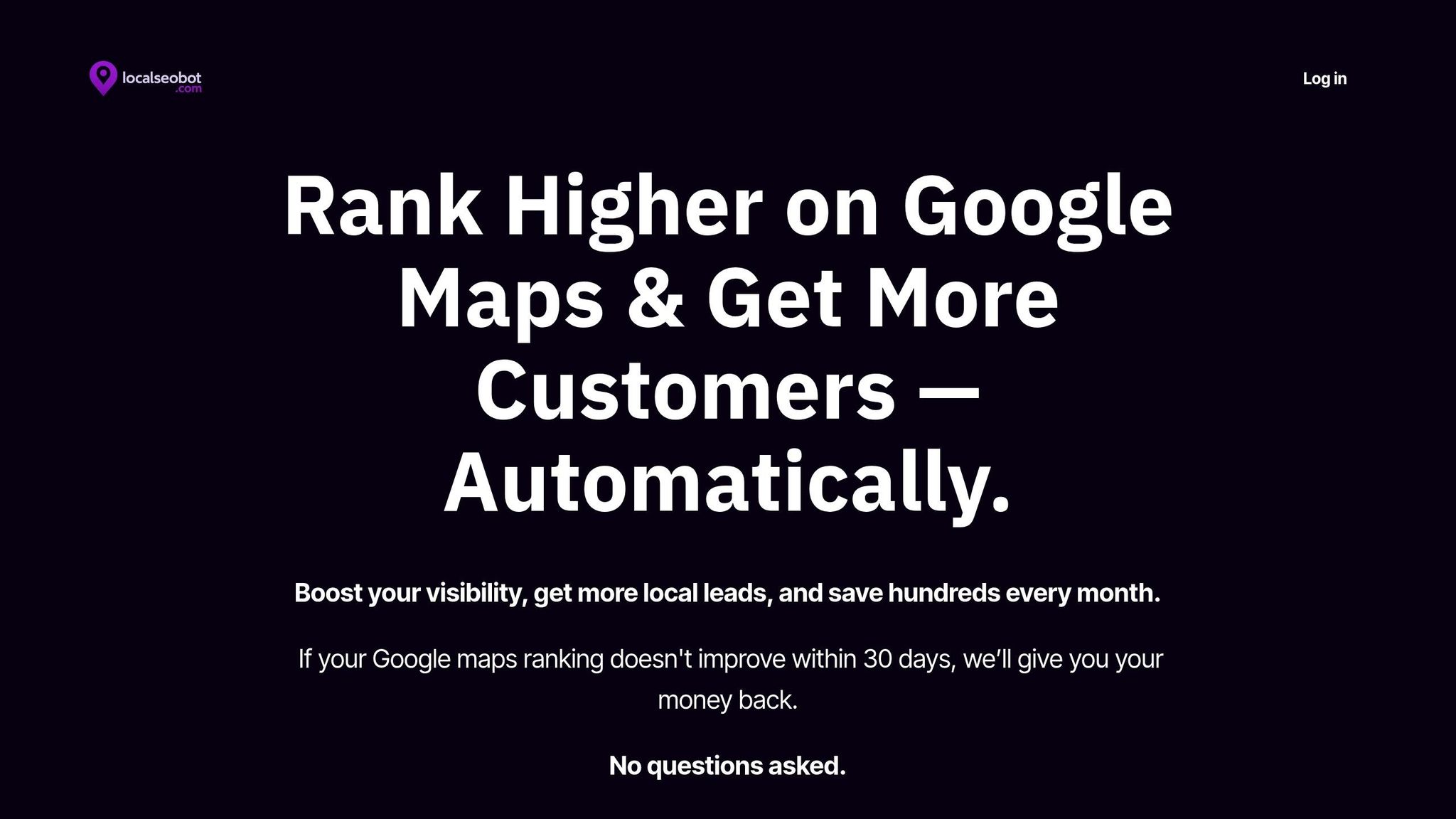
Local SEO Bot is designed specifically to help restaurants climb the ranks in Google Maps and enhance their visibility in local searches. For just $49 per month, this tool offers an automated local SEO solution, saving time for busy restaurant owners. Here's a closer look at the features that make it a valuable tool for restaurants.
Google Business Profile Optimization
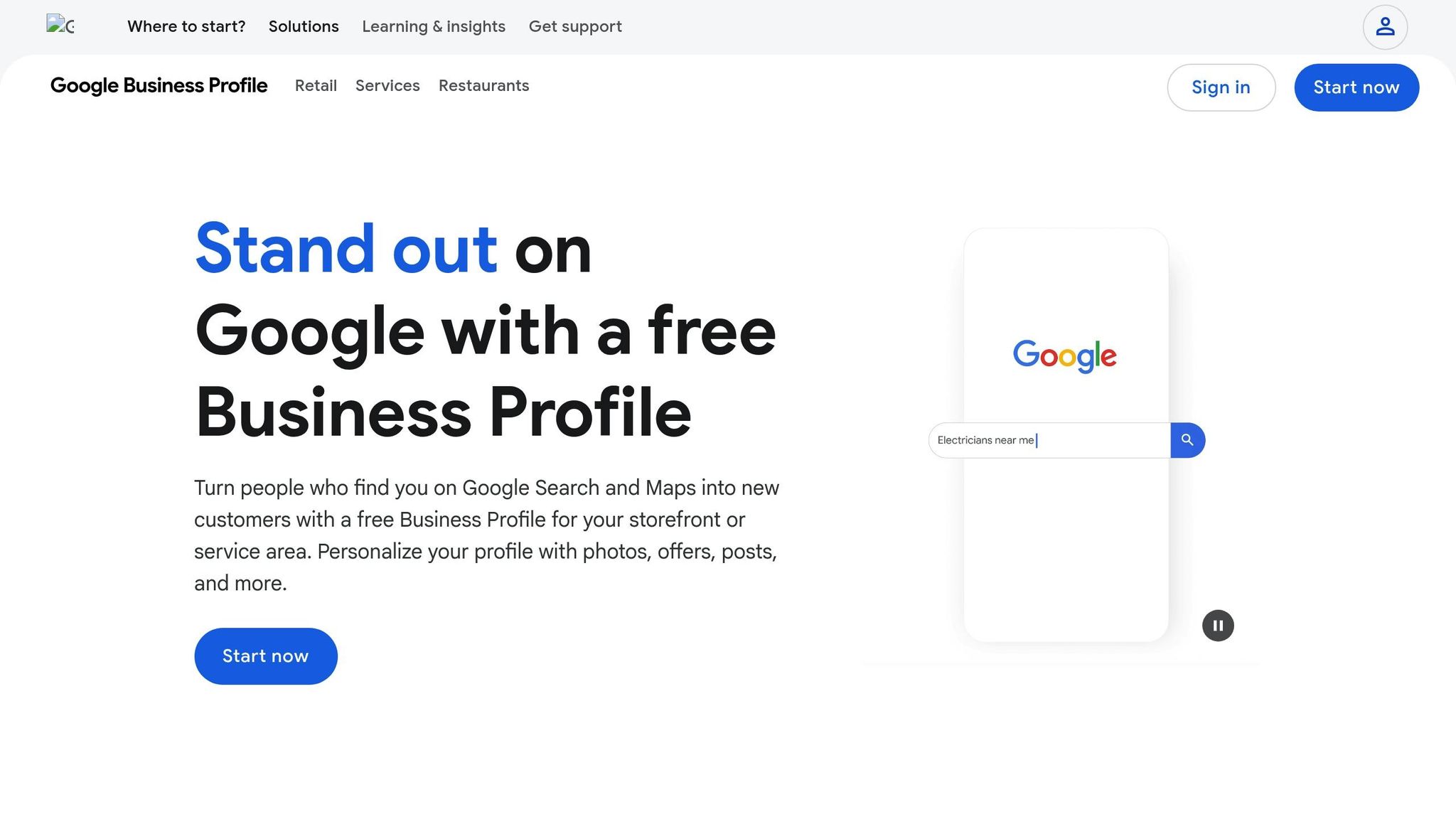
One of the standout features is its one-click optimizer, which takes the hassle out of managing your Google Business Profile. It ensures your profile stays fresh and engaging by automatically updating essential details like operating hours, menu highlights, and seasonal specials. This means restaurant owners can keep their listings relevant without the need for constant manual updates.
Citation and Listing Management
Local SEO Bot takes care of building and maintaining citations across various directories. By keeping your name, address, phone number, and hours consistent everywhere, it reduces confusion and strengthens your restaurant’s local search performance.
Review Monitoring and Response
Keeping up with customer reviews can be overwhelming, but Local SEO Bot simplifies this process. It tracks reviews across platforms and even generates automated responses. This allows restaurant owners to stay engaged with customers and build relationships, all while focusing on delivering an exceptional dining experience.
2. Google Business Profile
Google Business Profile is a game-changer for local SEO, especially for restaurants. This free tool helps your restaurant stand out to nearby diners searching for options like "Italian restaurant near me." To make the most of it, you need to fine-tune your profile.
How to Optimize Your Google Business Profile
Think of your profile as your restaurant's digital storefront. Use it to showcase your best dishes, share an up-to-date menu, promote special offers, and provide key details. A well-maintained profile not only grabs attention but also improves your visibility in local search results.
Stay on top of updates by uploading fresh photos of seasonal dishes, promoting daily specials, and adjusting your business hours for holidays. Make sure your profile includes essential details like your address, phone number, website, and features diners care about - outdoor seating, wheelchair access, the ability to make reservations, or whether your place is great for groups.
Managing Reviews and Building Trust
Your Google Business Profile will alert you when new reviews come in, giving you the chance to respond quickly. Engaging with reviews - whether they’re glowing or critical - shows you care about your customers. Plus, reviews can offer valuable feedback to help you tweak your menu or service. If you spot reviews that break Google's rules, you can report them for removal.
3. Google Keyword Planner
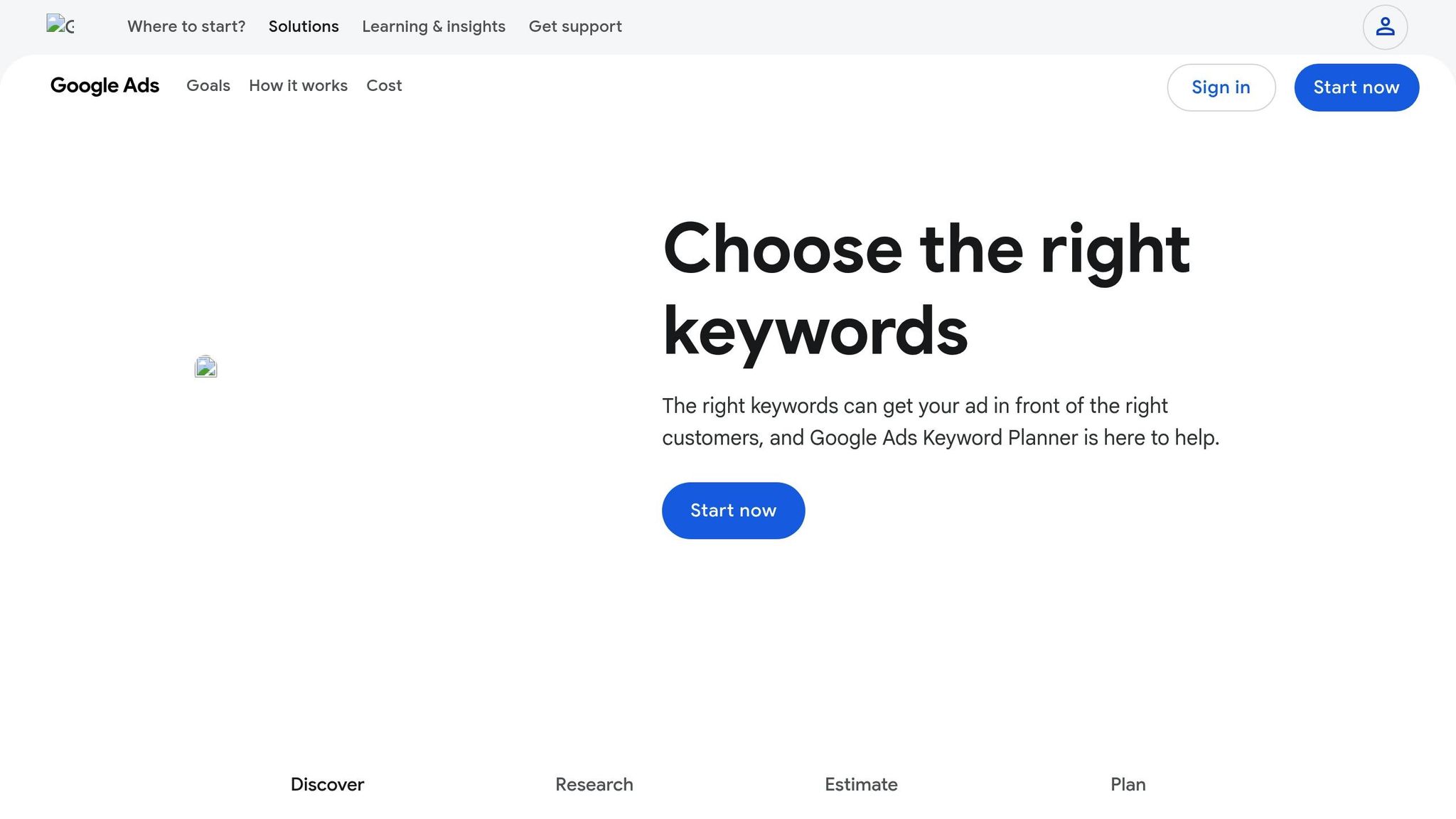
Local Keyword Research Capabilities
Google Keyword Planner is a free tool that can help restaurants uncover what potential customers in their area are actively searching for. Instead of relying on guesswork, this tool allows you to shape your SEO strategy using actual search data. Let’s break down the three key types of keywords it identifies, which are essential for driving foot traffic to your restaurant.
The tool highlights three main keyword categories:
- High-intent broad terms: These include phrases like "restaurants in Kansas City", targeting people specifically looking for dining options in a particular area.
- Niche keywords: These focus on your restaurant’s unique offerings, such as "vegan pizza near me" or "pizza parties Kansas City."
- Branded keywords: These are searches that mention your restaurant’s name directly, helping you capture an audience already interested in your business.
One of the most helpful features of Google Keyword Planner is its ability to show search volume data. For example, you can find out how many people search for terms like "romantic dinner spot in [your city]" or "best sushi in [your city]" each month. This information helps you prioritize the keywords that are most likely to bring in customers.
By analyzing customer search behavior, you can zero in on high-impact keywords. This ensures that the terms you’re targeting are the ones your potential customers are actually using.
Seasonal trends and events also play a big role in keyword research. For instance, searches like "game-day specials Kansas City" might spike during football season, while "romantic dinner spot" could see a boost around Valentine’s Day. These insights can guide your content and promotional strategies to align with peak search periods.
| Customer Type | Potential Keywords |
|---|---|
| Parent taking family out to dinner | "pizza family deals", "dine-in pizza specials", "family-friendly pizzeria", "family dinner Kansas City" |
| Mid-20's person looking for a spot to watch a game with friends | "pizza places that serve beer", "sports pub Kansas City", "where to watch the game Kansas City", "game-day specials Kansas City" |
| Parent looking to have a pizza party for a child | "pizza parties Kansas City", "group deals pizza parlor Kansas City", "kids birthdays Kansas City" |
This keyword data can be used to create a focused keyword roadmap. By leveraging monthly search figures, you can identify consistent opportunities and refine your strategy to focus on terms that reliably attract diners.
4. BrightLocal
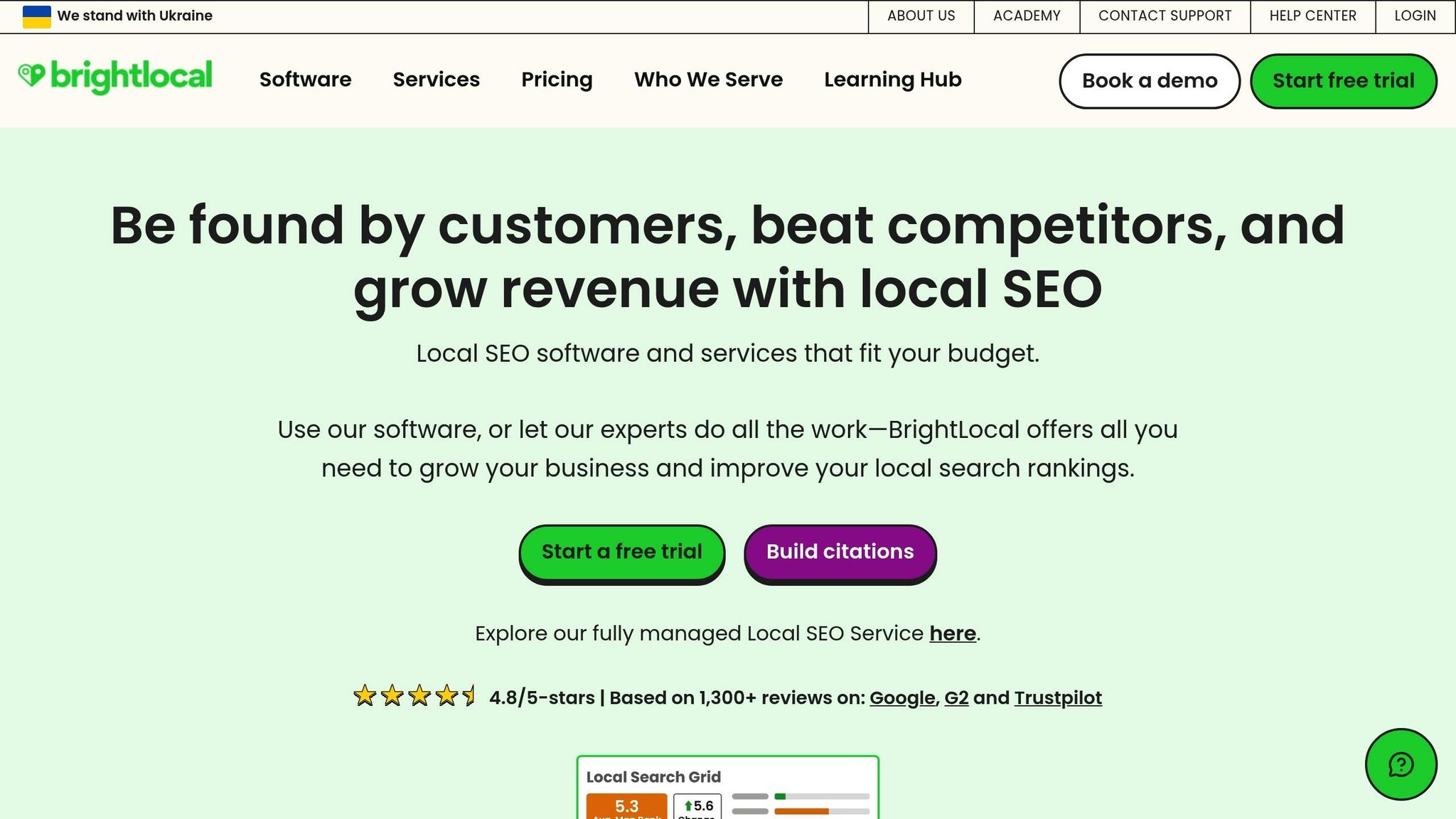
BrightLocal takes your restaurant's local SEO efforts up a notch by focusing on two critical areas: citation management and review monitoring. These features help improve your restaurant's online visibility and reputation.
Citation and Listing Management
BrightLocal simplifies the process of managing citations across major directories like Yelp, TripAdvisor, and even local chamber of commerce websites. By ensuring your business information is consistent across these platforms, it not only enhances your local visibility but also builds trust with search engines. The tool also identifies and fixes any inconsistencies in your listings, which is crucial for maintaining your restaurant's credibility online.
Review Monitoring and Response
With over 87% of consumers avoiding businesses with poor ratings, managing reviews is more important than ever. BrightLocal makes this easier by centralizing all your reviews in one place. This allows restaurant owners to keep a close eye on their online reputation and respond promptly to feedback, which is a key part of any local SEO strategy.
BrightLocal’s Track plan starts at $39 per month for a single location. It includes features like Local Rank Tracker and citation tracking, and you can test it out with a 14-day free trial. These tools make BrightLocal a valuable addition to your SEO efforts.
sbb-itb-0e6533f
5. Yext
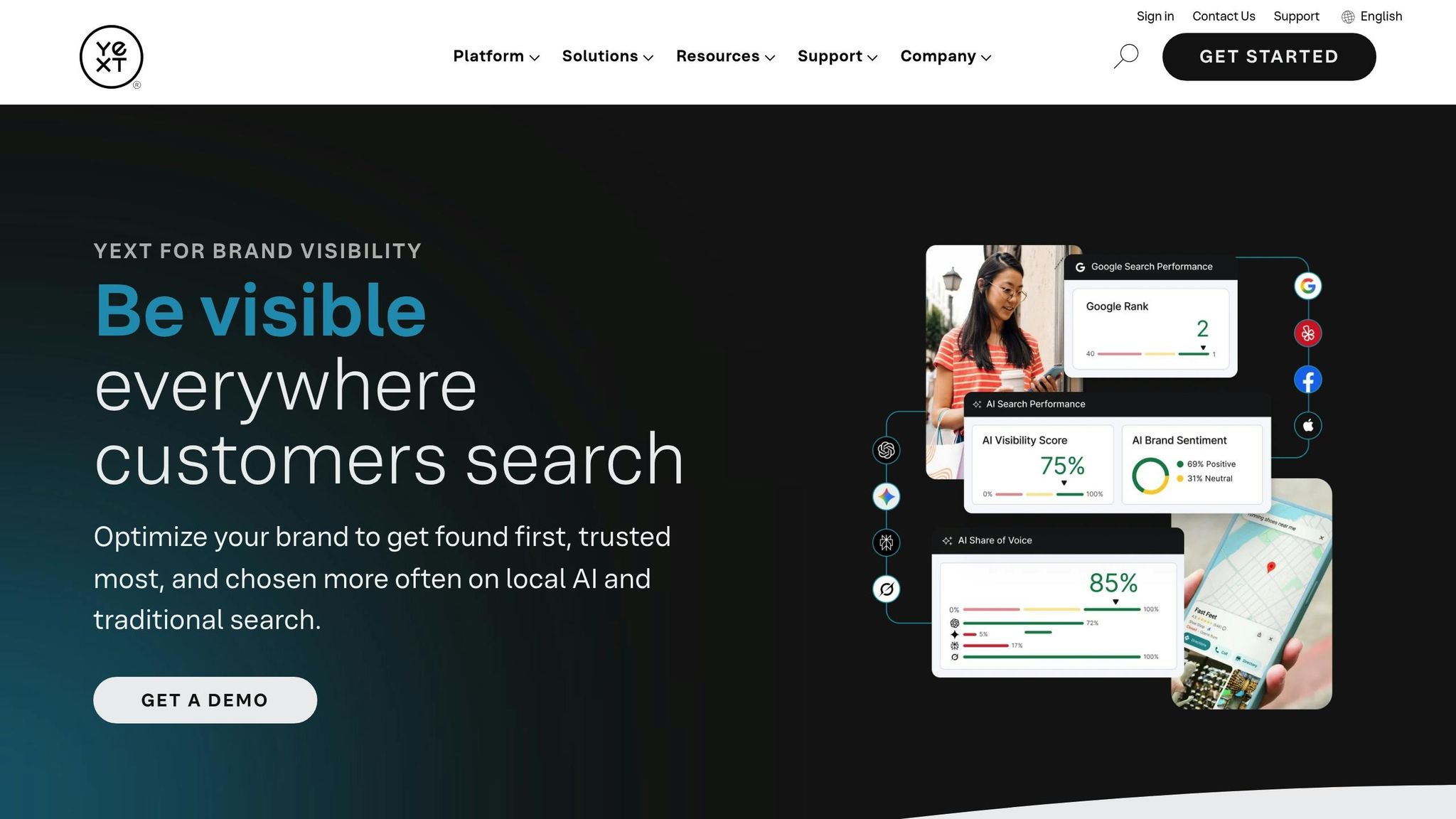
Yext is a tool designed to help restaurants maintain accurate online listings, which is crucial for improving local search rankings. By scanning the web, it ensures your restaurant's details are consistent and up-to-date across various platforms, reducing confusion for both search engines and potential customers.
Managing Citations and Listings
Yext focuses on identifying and fixing incorrect listings on major directories. Errors in your restaurant's name, address, phone number, or hours can create confusion, making it harder for diners to find you.
What makes Yext stand out is its broad directory coverage. It dives into a larger network of platforms than many other tools, making it especially useful for restaurants that have recently updated their location, contact details, or hours of operation. By keeping your information consistent everywhere, Yext helps ensure a smoother customer experience and can even drive more people to your door.
6. Reputation.com
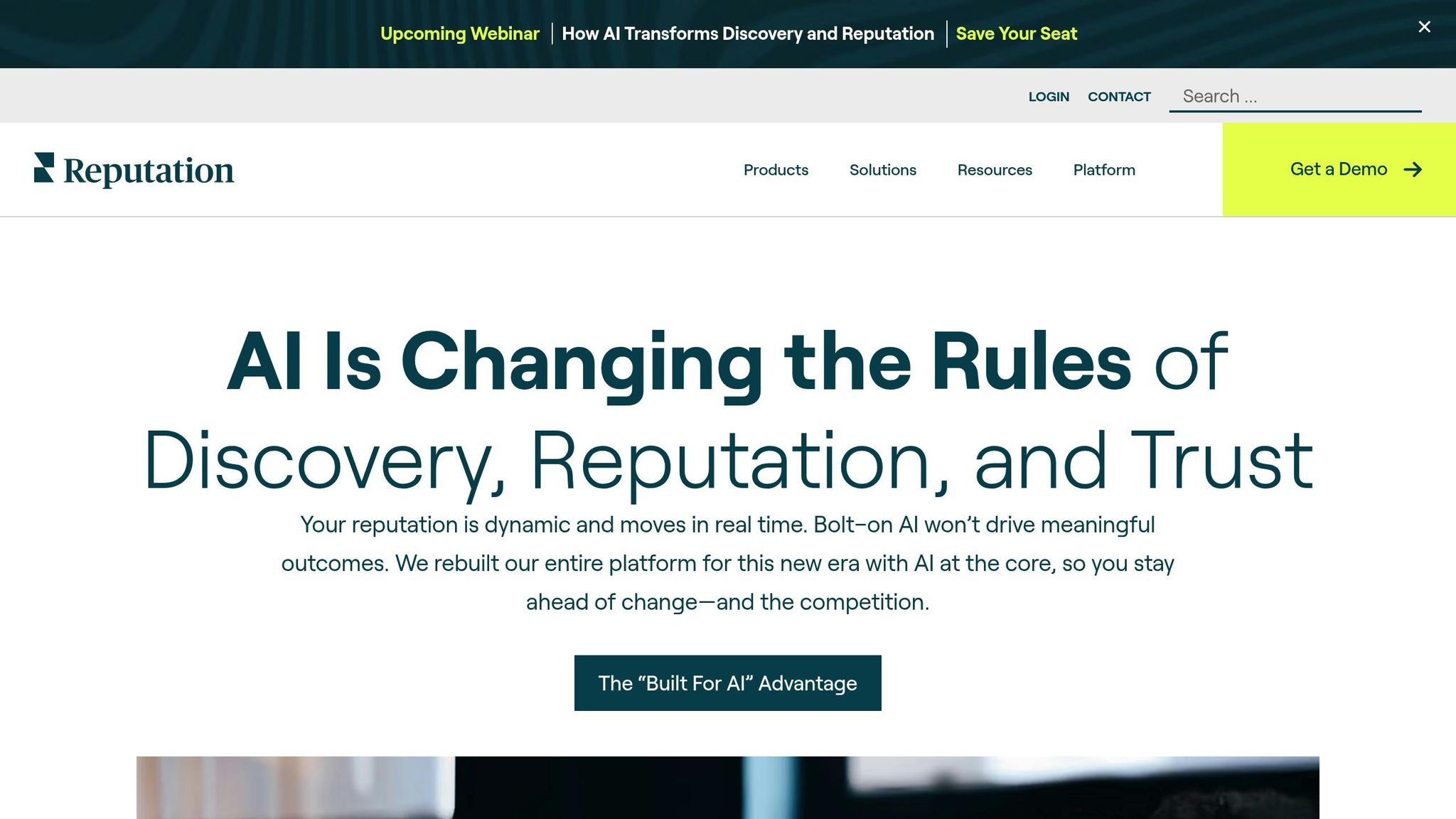
Reputation.com leverages AI to gather feedback from hundreds of external sources and internal data, giving you a complete picture of what customers think about your restaurant.
Review Monitoring and Response
One of the platform's standout features is its real-time monitoring system, which keeps track of customer sentiment across various channels. It collects reviews automatically and uses AI to analyze customer expectations in-depth.
A unique feature, the "Rep Score", goes beyond standard star ratings by measuring real-time consumer sentiment. The platform even provides tailored recommendations for each location, helping you resolve potential issues before they escalate into negative reviews.
The numbers back up its effectiveness. Restaurants using Reputation.com have reported a 510% increase in review volume and maintained an 88% positive review share. In one case, the platform helped generate over 1,000,000 5-star reviews while driving a 148% increase in ROI.
For handling negative feedback, Reputation.com offers a feature called "Better Service Recovery." This tool identifies specific issues mentioned in reviews and suggests actionable steps to address them. By taking proactive measures, you can turn a dissatisfied customer into a loyal advocate while also showing future customers that you take feedback seriously.
Google Business Profile Optimization
Reputation.com doesn’t stop at reviews - it also enhances your online presence. The increased review volume improves your Google Business Profile performance, helping your restaurant secure a spot in Google's 3-Pack for local searches.
7. SEMrush
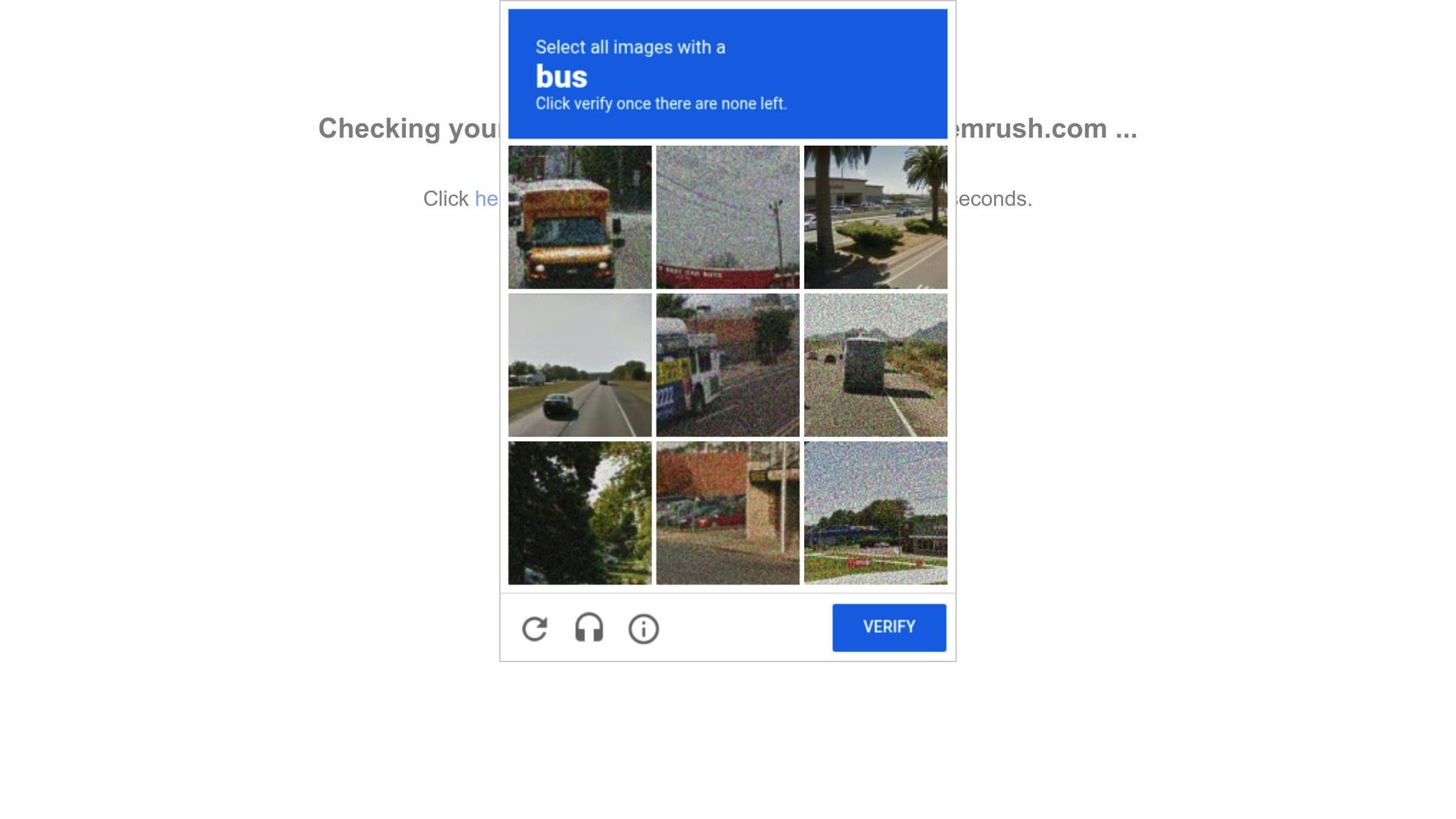
SEMrush is a robust digital marketing platform that offers a specialized tool called SEMrush Local, designed to simplify how restaurants manage their online reputation. By integrating review management into a single, easy-to-use dashboard, it enhances local SEO efforts and helps streamline customer feedback processes.
Review Monitoring and Response
SEMrush Local's Review Management tool brings together reviews from Google, Facebook, Yelp, and TripAdvisor into one centralized location. This saves time and ensures you never miss important customer feedback.
"The Review Management tool makes it easy to manage your online reputation and build loyalty. By engaging with customers. And responding to reviews."
- SEMrush Local
Beyond just consolidating reviews, this tool provides valuable insights, including reply rates, trends in historical ratings, total review counts, average ratings, and score distributions. These analytics help pinpoint recurring themes in feedback and identify areas where improvement is needed.
SEMrush Local also offers pricing options tailored for restaurants. The Premium plan costs $40/month per location and includes AI-powered suggestions for crafting thoughtful responses to Google reviews. The Basic plan, priced at $20/month, covers essential review management features. For those just starting out, a free plan is available, allowing you to audit up to five locations daily, check your presence in top directories, and view your average rating.
Tool Comparison Table
After reviewing individual tools, here's a side-by-side comparison to help you decide which ones can best drive foot traffic to your restaurant. The table below outlines the strengths, drawbacks, pricing, and ideal use cases for each platform, making it easier to match tools to your specific needs.
| Tool | Pros | Cons | Pricing | Best For |
|---|---|---|---|---|
| Local SEO Bot | Easy one-click optimization, automated review responses, robust local SEO features, Google Business Profile management | Limited to local SEO tasks only | $49/month | Small restaurants needing automated local SEO solutions |
| Google Business Profile | Free, direct integration with Google, essential for local search visibility, includes customer messaging | Basic analytics, limited functionality, requires manual updates | Free | All restaurants (a must-have baseline tool) |
| Google Keyword Planner | Free, reliable Google data, integrates with Google Ads, helpful for search volume insights | Requires a Google Ads account, fewer keyword suggestions for free users, basic interface | Free (with Google Ads account) | Restaurants starting keyword research or planning Google Ads campaigns |
| BrightLocal | All-in-one local SEO suite, detailed reporting, citation tracking, local rank monitoring | Steeper learning curve, may feel overwhelming for beginners | Starting at $29/month | Multi-location restaurants needing detailed local SEO tracking and reporting |
| Yext | Extensive directory management, real-time updates across platforms, powerful listing management | Expensive for small businesses, complex setup, annual contracts required | Custom pricing (typically $500+/month) | Large restaurant chains managing multiple locations |
| Reputation.com | Advanced review management, sentiment analysis, competitive benchmarking, AI-driven insights | High cost, enterprise-focused features may not suit smaller restaurants | Custom pricing (typically $300+/month) | Established restaurant groups prioritizing reputation management |
| SEMrush | Comprehensive digital marketing suite with detailed analytics and competitor research | Expensive for full features, local SEO tools sold as add-ons, steep learning curve | Starting at $119/month | Restaurants looking for broad digital marketing insights beyond local SEO |
Pricing spans from free tools like Google Business Profile and Keyword Planner to premium platforms like Yext and Reputation.com, which cater to larger operations. Mid-tier solutions such as Local SEO Bot ($49/month) and BrightLocal (starting at $29/month) often strike a balance for independent restaurants or small chains.
Budget considerations are crucial. Restaurants just starting out may find free tools like Google Business Profile and Keyword Planner sufficient to lay the groundwork. As their needs grow, they can incorporate specialized tools - whether for automating local SEO tasks, generating detailed analytics, or managing reviews.
While many tools share similar features, such as review management and listing updates, they differ in ease of use and depth of functionality. For most restaurant owners, the best approach is to combine two or three complementary tools. A common strategy might include:
- Google Business Profile as the foundation for local search visibility.
- An automated tool like Local SEO Bot for ongoing optimizations.
- A specialized platform, such as BrightLocal or Reputation.com, to address specific challenges like review monitoring or managing multiple locations.
This table highlights key differences and provides a clear starting point to help you choose the right mix of tools to boost your restaurant's local SEO efforts.
Conclusion
Picking the right SEO tools can make a huge difference in boosting your restaurant's local visibility and drawing in more customers. The trick is to find a mix of tools that align with your budget and business goals.
For many restaurant owners, starting with free tools is a practical first step. Google Business Profile lays the groundwork for your online presence, while Google Keyword Planner helps you identify what local customers are searching for.
As your restaurant grows, automating your local SEO becomes a smart move. Tools like Local SEO Bot (priced at $49/month) can take over repetitive optimization tasks, freeing up your time to focus on running your business. With these tools in place, you'll maintain a strong online presence without the hassle of constant manual updates.
If you run a multi-location restaurant or manage a larger group, you'll need more advanced solutions. These tools ensure your information stays consistent across directories and provide detailed performance insights for each location.
The most effective strategy for restaurants combines these tools in a thoughtful way. Use Google Business Profile as your starting point, add an automation tool for daily tasks, and bring in specialized platforms to tackle challenges like managing reviews or analyzing competitors. This layered approach keeps costs manageable while delivering strong results.
Keep in mind, local SEO isn't a one-and-done task - it requires regular attention. The restaurants that consistently attract customers are the ones that update their information, respond to reviews quickly, and keep an eye on their local search performance. The right tools make these ongoing tasks easier and give you an edge over competitors who may overlook their online presence.
Investing in SEO tools isn't just about improving your website - it's about driving real results like increased reservations, takeout orders, and foot traffic. Start with the basics, track your progress, and gradually expand your toolkit as your business grows and your budget allows.
FAQs
How can restaurants use local keyword research to attract more customers?
Local keyword research is a powerful way for restaurants to tap into the specific terms people in their area use when searching for places to eat. By weaving these location-focused keywords into your website, Google Business Profile, and other online listings, you can boost your visibility in local search results and draw more diners to your restaurant.
Zero in on keywords that showcase your cuisine, location, and standout features. For instance, phrases like “top Italian restaurant in downtown Chicago” or “kid-friendly brunch near me” can help your restaurant connect with nearby customers actively searching for those experiences. Keeping your content updated with these keywords ensures your restaurant remains relevant and easy to find in local searches.
What features should a restaurant with multiple locations look for in an SEO tool?
When selecting an SEO tool for a restaurant with several locations, prioritize features that streamline managing your online presence across those locations. Look for tools offering local SEO heatmaps to monitor keyword rankings in specific areas. Tools with Google Business Profile automation make it easier to update details for multiple locations in one go. Local citation management is another must-have to ensure your business information stays accurate across major directories. Additionally, tools that automate review requests and help manage responses for each location can save valuable time while boosting your reputation.
Why is citation management important for improving a restaurant's local search visibility?
Keeping your restaurant’s information consistent across online directories is key to boosting its visibility in local search results. When details like your name, address, and phone number (NAP) are accurate and uniform everywhere, search engines are more likely to trust your business. This trust can translate into higher rankings in local search results.
But it’s not just about search engines. Accurate citations also make it simpler for potential customers to locate your restaurant, which can lead to more people walking through your doors.
